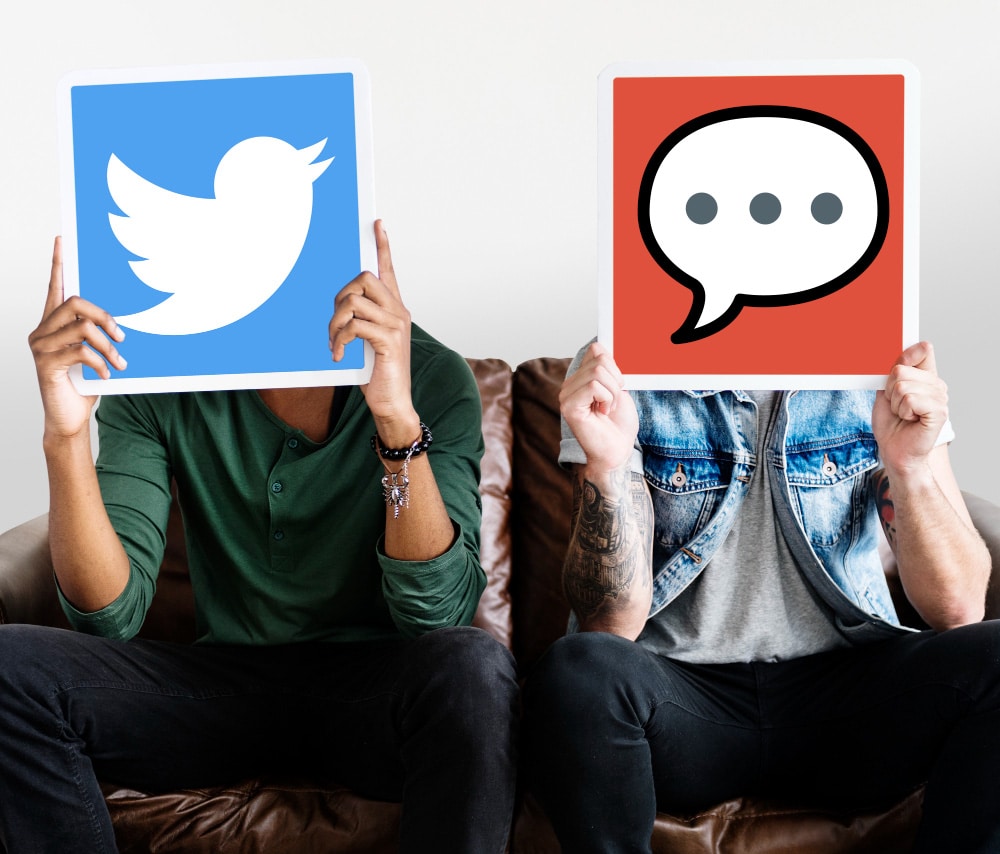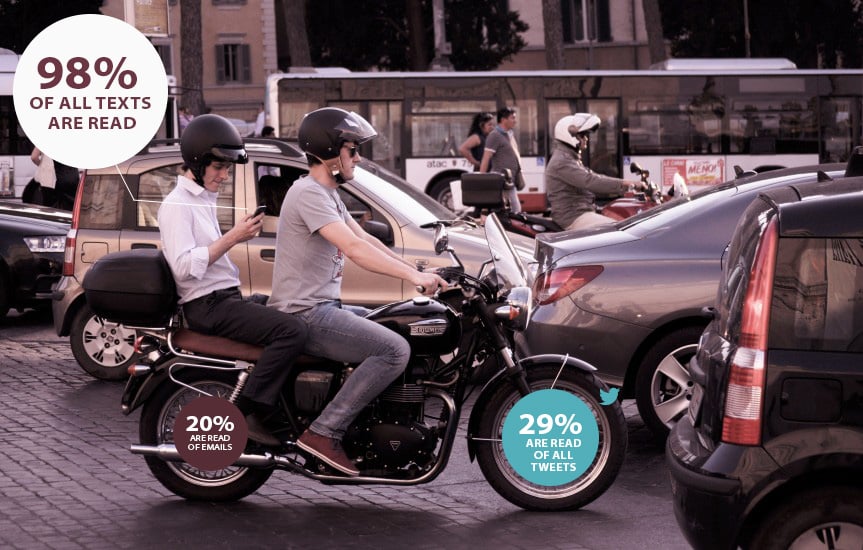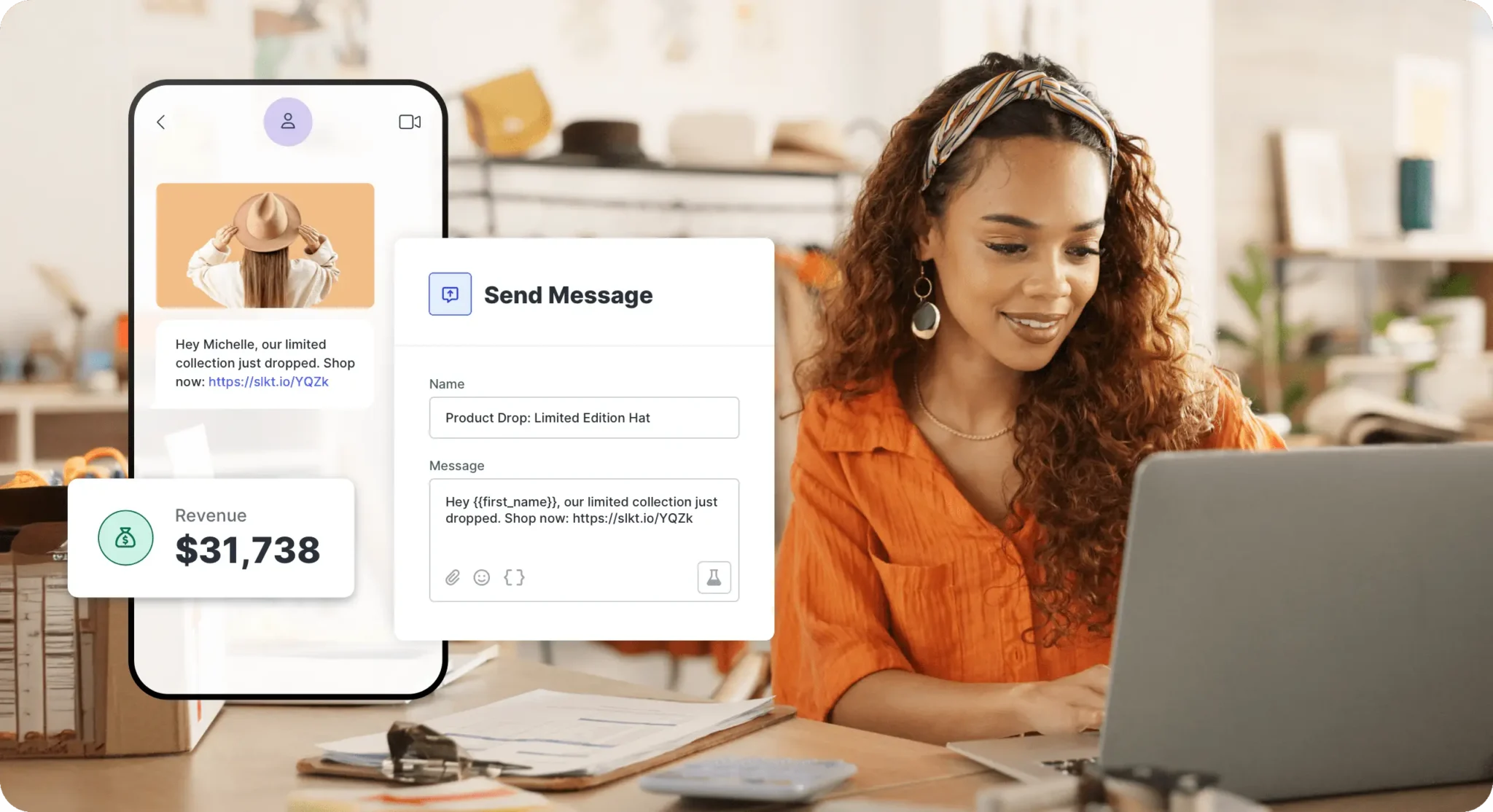Table of Contents
- Texting vs. Twitter
- 1. Instant Signup for Engagement
- 2. Retention Across Platforms
- 3. Guaranteed Message Visibility
- 4. Personalization and Targeting
- 5. Minimal Effort, Maximum Impact
- 6. Advanced Tracking and Analytics
- 7. Scheduled Messaging
- 8. On-Demand Delivery
- 9. Unmatched Reach and Timeliness
- 10. Proven Engagement Rates
When deciding between texting and Twitter for communication or marketing, the winner often depends on effectiveness, engagement, and simplicity. Below is a detailed discussion on the advantages of texting over twitter.
Texting vs. Twitter
| Feature | Texting | |
|---|---|---|
| Ease of Signup | Instant signup by texting a keyword to a shortcode. | Multiple steps, including permissions and number confirmation. |
| Retention | Contacts stay on the list until they unsubscribe. | Followers leave when they quit Twitter, leaving no way to reach them. |
| Message Visibility | Delivered directly to phones; 96% of texts are read within 15 minutes. | Competes with other tweets and daily clutter; visibility is uncertain. |
| Personalization | Messages can be targeted to specific groups. | Broadcasts to all followers, risking irrelevance for many. |
| Engagement Frequency | 1-2 monthly messages keep users engaged. | Requires frequent, often daily updates to maintain interest. |
| Analytics | Offers detailed tracking and performance insights. | No built-in analytics for message delivery or engagement. |
| Scheduling | Messages can be scheduled far in advance. | No built-in scheduling without third-party tools. |
| On-Demand Delivery | Deals or information are sent instantly upon request. | No system for instant consumer-triggered information delivery. |
| Guaranteed Reach | Direct delivery ensures most messages are seen. | Delivery depends on users enabling notifications. |
| Proven Effectiveness | 96% open rates for texts. | No reliable data on Twitter message engagement. |
1. Instant Signup for Engagement
With texting, signing up is as easy as texting a keyword to a shortcode. The process is quick, requiring just seconds. On the other hand, Twitter requires users to follow you, confirm permissions, and enable mobile notifications—steps that create friction.
Texting Wins: A streamlined process reduces barriers and leads to higher opt-in rates.

2. Retention Across Platforms
Texting offers a significant advantage in audience retention. Even if users switch to another social network, they remain on your texting list until they choose to unsubscribe. Twitter followers, however, are tied to the platform. If they leave Twitter, they’re gone forever.
Key Insight: Texting lets you maintain relationships regardless of platform trends.
3. Guaranteed Message Visibility
Statistics reveal that 96% of texts are opened, with most read within 15 minutes. Texting directly delivers messages to users’ phones, making it nearly impossible to miss. Twitter, however, mixes your tweets with countless others. There’s no guarantee your audience will notice your message amid the noise.
Result: Texting ensures your messages are seen promptly and reliably.
4. Personalization and Targeting
Texting enables you to divide your audience into segments, allowing for personalized communication. For example, you can send exclusive offers to VIP customers or location-based messages to specific regions. On Twitter, every tweet is broadcast to your entire follower base, whether or not it’s relevant to all of them.
Big Benefit: Targeted messages lead to stronger engagement and higher satisfaction.
5. Minimal Effort, Maximum Impact
Texting doesn’t demand constant communication. Sending one or two strategic messages each month is enough to maintain high engagement levels. Twitter requires frequent updates, which can be labor-intensive and may lead to diminishing returns if your followers feel overwhelmed.
Efficiency Advantage: Save time and effort while keeping your audience engaged.

6. Advanced Tracking and Analytics
SMS platforms come equipped with detailed tracking and analytics tools. You can measure open rates, click-through rates, and campaign performance in real time. Twitter lacks built-in analytics for individual tweets, making it difficult to gauge effectiveness without third-party tools.
Why It Matters: Analytics help refine strategies for better results.
7. Scheduled Messaging
Texting platforms allow you to schedule messages far in advance. You can plan campaigns for months, or even years, giving you more control and reducing last-minute stress. Twitter doesn’t offer native scheduling without using additional software.
Takeaway: Scheduling ensures consistency and saves time.
8. On-Demand Delivery
Texting platforms let users request deals, updates, or information instantly. For example, a customer can text “COUPON” and receive an immediate reply with a discount code. Twitter lacks this capability, requiring users to scroll through tweets or wait for updates.
Consumer Convenience: Deliver information exactly when it’s needed.
9. Unmatched Reach and Timeliness
With texting, your message lands directly in the recipient’s inbox. Most users read texts promptly, ensuring timely communication. On Twitter, delivery depends on whether users have enabled mobile notifications, which many don’t.
Critical Advantage: Ensure your message is received and acted upon promptly.
10. Proven Engagement Rates
The statistics speak for themselves: 98% of text messages are opened, and they boast significantly higher engagement rates than most social media channels. Twitter, meanwhile, offers no reliable data on how many followers actually see or engage with tweets.
Bottom Line: Texting provides measurable and dependable engagement.

Final Verdict
While Twitter has its place as a social media platform, texting offers unmatched reliability, personalization, and impact. With superior engagement rates and fewer barriers to connection, texting proves to be the ultimate tool for modern communication and marketing.
Start your SMS marketing today with ProTexting.






